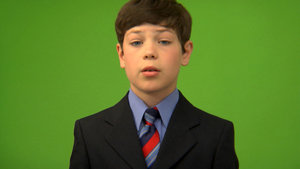Omer Fast
dal 20/11/2008 al 17/1/2009
Segnalato da
20/11/2008
Omer Fast
Kunstverein Hannover, Hannover
In his double and multi-projection projects Fast examines how experience is transformed into memory and then conveyed, stored, or repressed. In this process he is equally interested in personal perception as well as the public depiction of certain occurrences. For his film Spielbergs List, for example, the artist accordingly interviewed residents of Cracow who worked as extras in Oscar-winning movie Schindler's List. For his 18-minute long piece CNN Concatenated, Fast assembled the monologues of various news readers from recordings of 10,000 terms word for word.

Omer Fast (born 1972) is among the most distinctive film and video artists of the younger generation. The works by the Jerusalem-born and, since 2001, Berlin-based artist have attracted attention in recent years in exhibitions at the Carnegie Museum in Pittsburg, the Museum of Art in Indianapolis, and the MUMOK in Vienna, where, among other works, he presented The Casting (2007) for the first time: a multi-channel video that was awarded one of the most prestigious international art prizes in April 2008 in conjunction with the Whitney Biennale at the Whitney Museum of American Art.
In his double and multi-projection projects Fast examines how experience is transformed into memory and then conveyed, stored, or repressed. In this process he is equally interested in personal perception as well as the public depiction of certain occurrences. For his film Spielbergs List (2003) Fast accordingly interviewed residents of Cracow who worked as extras in Steven Spielberg’s Oscar-winning movie Schindler´s List. While the lay actors related their experiences, it becomes harder for the viewer to determine if he is listening to eye-witness accounts of the historical events or to recollections relating to the making of the movie. Even the images veer between pictures showing the city of Cracow and the remnants of the former concentration camp at Płaszów in addition to the immediately adjoining film set. This intertwining and permanent switching between personal memory and historic reconstruction plays a significant role in Fast’s work. The viewer literarily feels the unending ambivalence between the authentic and the fictional.
The logic of a linear narrative is undermined by the film montage technique so characteristic of Fast’s work: Image and sound from his cinematic evaluations of a situation are dissected into individual parts and then meticulously reshaped. For his 18-minute long piece CNN Concatenated (2002), Fast assembled the monologues of various news readers from recordings of 10,000 terms word for word. Even more complex are Fast’s montages in The Casting (2007) in which different scenes are projected onto both sides of two screens that cannot be viewed simultaneously. The starting point is an interview made by Fast in 2006 with an American soldier before a renewed tour of duty in Iraq. In it, the soldier spoke about two traumatic occurrences, private as well as professional, which Fast worked up into a permanently interweaving story with a uniform sound track. Interestingly, the scenes appear at first glance like strangely familiar photographs. Only small details–such as ascending smoke–clearly indicates that we are watching cinematic moving pictures in time. Fast asked the actors to re-enact the events described by the soldier in accordance with media models and then to “pause” for several seconds. It is particularly this supposed standstill that enables the viewer to realize that the seemingly documentary scenes are stereotypical media staging. Even the positioning of the projection surfaces in the exhibition space forces–contrary to conventional cinematographic seeing–an activation of the viewer who must move about to take in the complex montages.
The cogency of Omer Fast’s works lies particularly in the refusal to transform experiences into consumable narratives in accordance with the conventions of historical reconstruction. The exhibition in the Kunstverein Hannover represents the first institutional survey of Omer Fast’s works in Germany and it gathers together works made between 2002 and 2008.
The exhibition will be accompanied by a catalog and an edition.
opening: friday, november 21 2008, 8 p.m.
Kunstverein Hannover
Sophienstrasse 2 - Hannover



